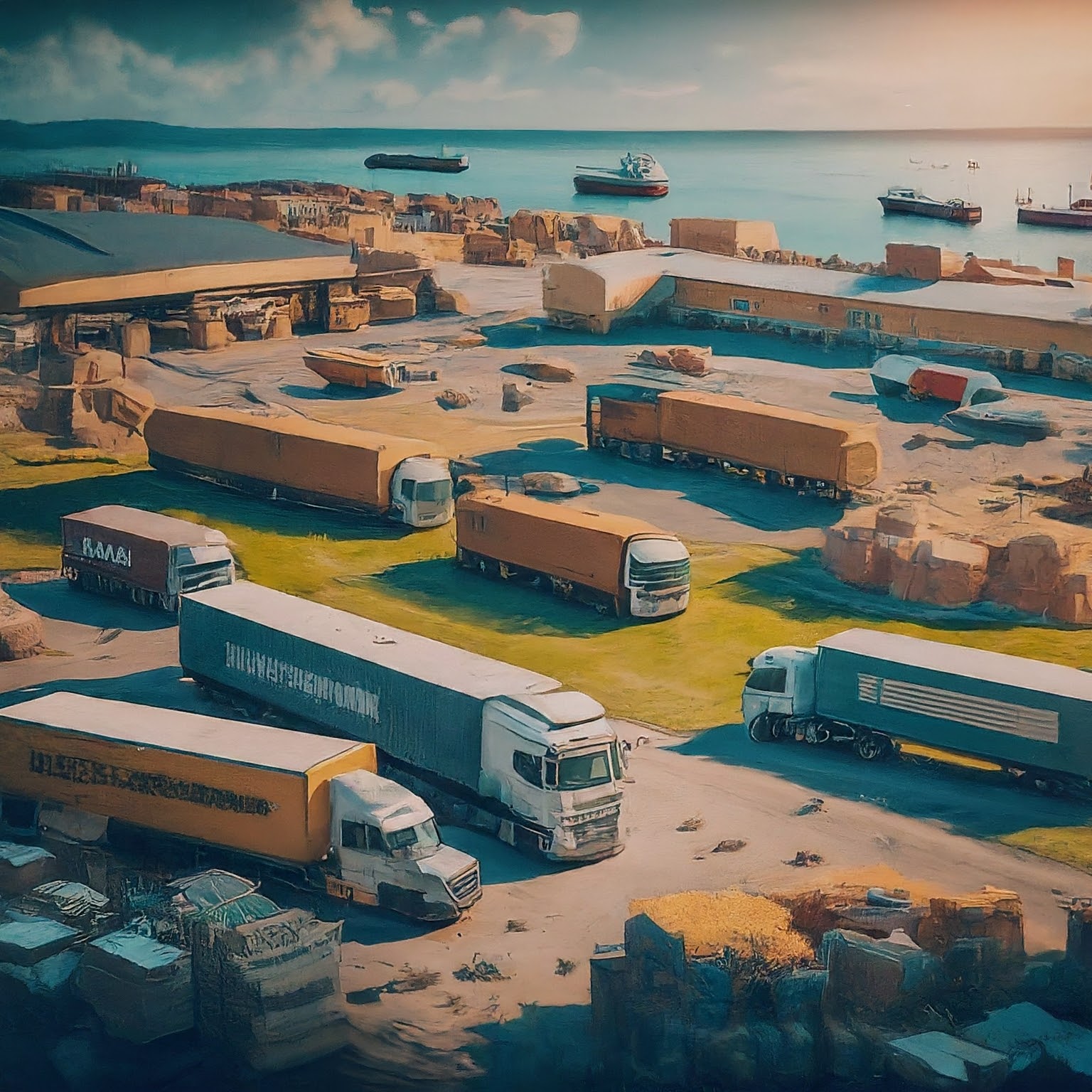
Technology

The logistics and transportation sector is the backbone of the American economy. It's a vast, intricate network that ensures goods move smoothly from manufacturers to consumers. In the United States, this industry is not only crucial for domestic trade but also plays a significant role in global commerce. They handle the entire journey, from choosing the most suitable mode of transport (trucks, trains, planes, or even ships) to secure warehousing and inventory management. They also navigate the complexities of international shipping, handling customs clearance and ensuring smooth passage through regulations.
The Importance of Logistic Transport Companies
Logistic transport companies play important role in the economy. They handle everything from raw materials to finished products, ensuring timely delivery.The logistics and transportation sector is a major contributor to the US Gross Domestic Product (GDP). The American Trucking Associations (ATA) estimates that the industry contributes over $8.2 trillion annually to the US GDP, which is roughly 14.5% of the total economic output.The logistics and transportation sector is also a significant source of job creation in the United States. The Bureau of Labor Statistics reports that the transportation and warehousing industry employs over 14.7 million people, making it one of the largest employment sectors in the country. Here are a few reasons why they are so important
Impact on the economy: Logistics plays a crucial role in boosting the GDP of the United States. It creates millions of jobs, It spans from truck drivers to warehouse managers and impacts numerous industries such as retail, manufacturing, and e-commerce.
Key Players in Logistic transport company in USA
The logistics transport industry in the USA is dominated by several key players who ensure the smooth movement of goods across the country. Major companies include UPS (United Parcel Service) and FedEx, both of which offer comprehensive logistics solutions including freight services, package delivery, and supply chain management. XPO Logistics is another significant player, providing a range of services such as truck brokerage, supply chain management, and last-mile delivery. J.B. Hunt Transport Services focuses on transportation and logistics services, particularly intermodal, dedicated, and truckload transportation. Schneider National is known for its broad spectrum of logistics services, including truckload, intermodal, and logistics. Additionally, C.H. Robinson offers extensive third-party logistics services, leveraging technology to optimize supply chains. These companies collectively play a crucial role in maintaining the efficiency and reliability of the logistics and transportation sector in the USA
Challenges Facing the Industry
The trucking and logistics industry faces numerous challenges that impact its efficiency and profitability. Here are a few challenges to consider
Infrastructure:
Essential infrastructure, like highway, bridges, and ports, helps in efficient transportation. Essential bodies have to investments in modernizing these assets, and these are essential to meet growing demand.
Driver Shortage: It is a fact that there is a shortage of drivers because the workforce is aging, lifestyle concerns are widespread, and regulatory requirements are high.
Environmental Concerns: A growing awareness of climate change puts pressure on the logistics sector to reduce its carbon footprint.
Technological Disruption: Implementing and integrating new technologies, such as AI, IoT, and automation, requires substantial investments and skilled labor. Failure to adopt these technologies will lead to inefficiency and poor customer service.
Next-Gen Innovations Crafting Future
The logistics industry is undergoing a rapid transformation, driven by technological advancements that are redefining the way goods are moved and managed. From autonomous vehicles and drones to artificial intelligence and blockchain, these innovations are streamlining operations, enhancing efficiency, and improving customer experience. As a result, logistics companies are evolving to meet the demands of a digital age, characterized by faster delivery times, increased transparency, and sustainability. Below are the few technologies.
Automation and AI:
From autonomous trucks to AI-powered route optimization, automation is transforming logistics. These technologies can reduce costs, improve safety, and increase efficiency.
Sustainable Practices:
Adopting eco-friendly measures, such as using electric vehicles, optimizing loads to reduce trips, and investing in renewable energy for warehouses.
Blockchain:
Blockchain technology offers enhanced transparency and security in the supply chain. It can track goods in real-time, reduce fraud, and streamline documentation processes.
E-commerce Integration: The rise of e-commerce has led to increased demand for last-mile delivery solutions. Logistics companies are developing innovative ways to handle this, including drone deliveries and smart lockers.
No comments yet. Be the first to comment!
05 Aug 2024
14 Aug 2024
14 Aug 2024
14 Aug 2024
16 Aug 2024
20 Aug 2024
21 Aug 2024
22 Aug 2024
23 Aug 2024
25 Aug 2024
25 Aug 2024
26 Aug 2024
26 Aug 2024
27 Aug 2024
28 Aug 2024
29 Aug 2024
01 Sept 2024
01 Sept 2024
02 Sept 2024
03 Sept 2024
04 Sept 2024
05 Sept 2024
06 Sept 2024
08 Sept 2024
09 Sept 2024
10 Sept 2024
12 Sept 2024
13 Sept 2024
07 Oct 2024
17 Oct 2024
18 Oct 2024
22 Oct 2024
29 Oct 2024
05 Nov 2024
06 Nov 2024
08 Nov 2024
11 Nov 2024
19 Nov 2024
20 Nov 2024
©copyright 2024, supertruck.ai